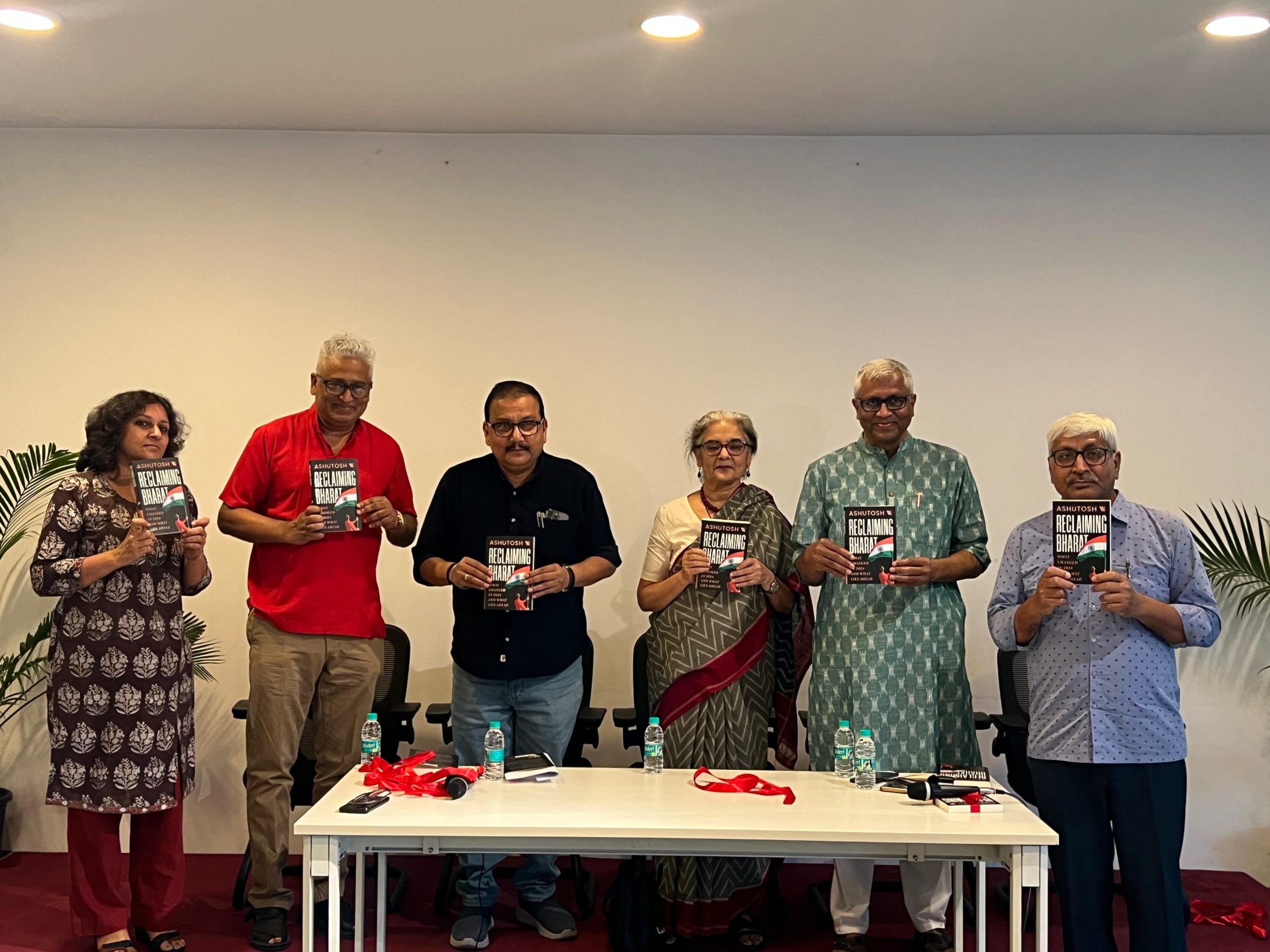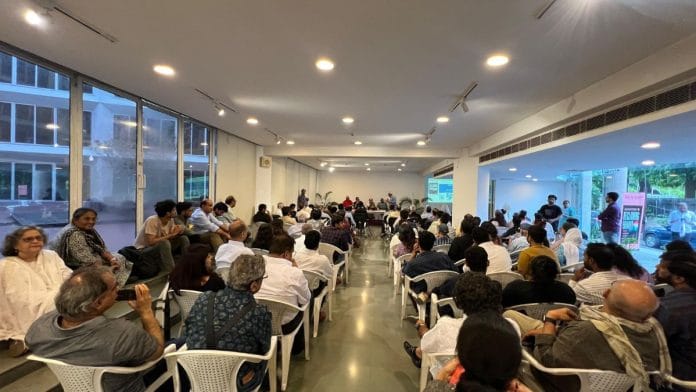New Delhi: The launch of a book on the 2024 Lok Sabha elections in Delhi was overshadowed by the war clouds as India was in the middle of Operation Sindoor on 9 May.
“It doesn’t feel right to have this event right now, though officially we are not in the state of war. Though if you believe television channels, we have won the war,” Professor Apooranand joked. He was moderating a panel discussion at the launch of Reclaiming Bharat: What Changed in 2024 and What Lies Ahead, authored by journalist Ashutosh.
Even as the rest of the nation was glued to TV screens, closely following MEA briefings, the book launch held at the Jawahar Bhawan in Windsor Place saw a good turnout – journalists, lawyers, and some students.
Organised by Nehru Dialogues and Westland as a part of their monthly series Conversations in Context, the event had a diverse set of panelists: political scientist Zoya Hasan, journalist and author Rajdeep Sardesai, RJD MP Manoj Jha, and Ashutosh himself. They gave brief speeches discussing the book’s primary theme, The Future of Constitutional Democracy.

Ashutosh’s Reclaiming Bharat discusses the general election of 2024, where despite media projections of a decisive victory for Bharatiya Janata Party (BJP), and its confident campaign slogan of ‘Abki baar, 400 paar’ (this time, over 400), the party lost its majority in the Lok Sabha. In 10 chapters, Ashutosh mentions brazen suppression of political oppression, the unapologetically communal plank, and the funds linked to the BJP. And that the election result was a hopeful sign of constitutional democracy in India.
Case of Constitution
Introducing the book, Ashutosh passionately argued that this fear was not hypothetical. India was going through an ideological shift. “The current government’s ideology does not believe in the Indian Constitution—in fact I was willing to bet my neck on it,” he declared. He added that the government viewed the Constitution as “a Western, Christian framework that is a threat to Akhand Bharat.”
Zoya Hasan said that what stood out about the book was that it wasn’t the usual election analysis, but rather a political analysis of the past decade of the BJP government. She argued that Ashutosh successfully highlighted the fundamental changes made in the economy, polity, and society, unlike other academic analysis that views these developments as a continuation of the past. This change, she added, is deeply ideological. “There seems to be a clear shift from unity in diversity to unity in uniformity,” Hasan said.
Sardesai, the author of a similarly themed book, 2024: The Election That Surprised India, started his speech contending, “The election that brought BJP to power marked a fundamental transfer of power that has resulted in the emergence of what could eventually be a second republic.” This ‘second republic’, Sardesai suggested, wants to negate the idea of equal citizenship enshrined in the constitution. He was confident about the endurance of electoral democracy but less optimistic about the future of India’s constitutional democracy. “My only question is, are we seeing the rise of Hindutva or have we seen the rise of Moditva?” he asked.
The discussion revealed their differences in how the speakers saw the current political scenario. Hasan offered a more academic and political analysis, arguing that Ashutosh’s book focuses too much on caste, especially regarding BJP’s setback in Uttar Pradesh in the 2024 election. She argued that political analysis cannot be separated from economic discontent. “We witnessed a broader discontent among millions of people who are being left behind in India’s growth story.”
Hasan also pointed out that Rahul Gandhi’s Bharat Jodo Yatra on the election results still needs to be discussed. Manoj Jha also responded to Ashutosh’s book title, Reclaiming Bharat, “India and Bharat cannot be binary. They are not two separate entities. If India is not inclusive, then Bharat cannot be inclusive either.”
As Sardesai acknowledged the loss of a larger ideological battle and rise of majoritarianism in Indian democracy, Manoj Jha offered a note of optimism, “If we can still fill a room with people who still want to hear about constitutional democracy, perhaps the threat isn’t as big as we fear it is”.
Also read: Rafale’s Sindoor strike thrilled TV war rooms—’Painted Pakistan red’, ‘Dharam bata diya’
Misinformation during crisis
The book launch couldn’t remain immune for long as the India-Pakistan border tensions found their way into the room.
Much of the conversation centered on the media’s role, long regarded as a canary in the coal mine for constitutional freedoms. Manoj Jha brought up attempts by the media to link the India-Pakistan conflict with the Bihar elections. “When the death of your citizens can be normalised as an election strategy, that tells you where we have arrived as a democracy.”
Rajdeep Sardesai, who had spent much of the previous night reporting the conflict live on India Today, sheepishly acknowledged misinforming key facts. He pointed to broader issues with the media coverage of Operation Sindoor.
“Twitter handles can be taken down, television channels can be blocked, and corporations can be asked to take over news networks,” he noted.
The recent blocking of news media sites by the government, citing security concerns, was mentioned by nearly every speaker. They were concerned this was another example of democratic backsliding.
“This is a timely moment to have this event,” said Zoya Hasan, adding that today’s Indian media was “corporate-owned but government-controlled”.
Sardesai and Jha left the event midway. While Sardesai returned to report on the India-Pakistan tensions, Jha cited a prior commitment.
(Edited by Ratan Priya)






